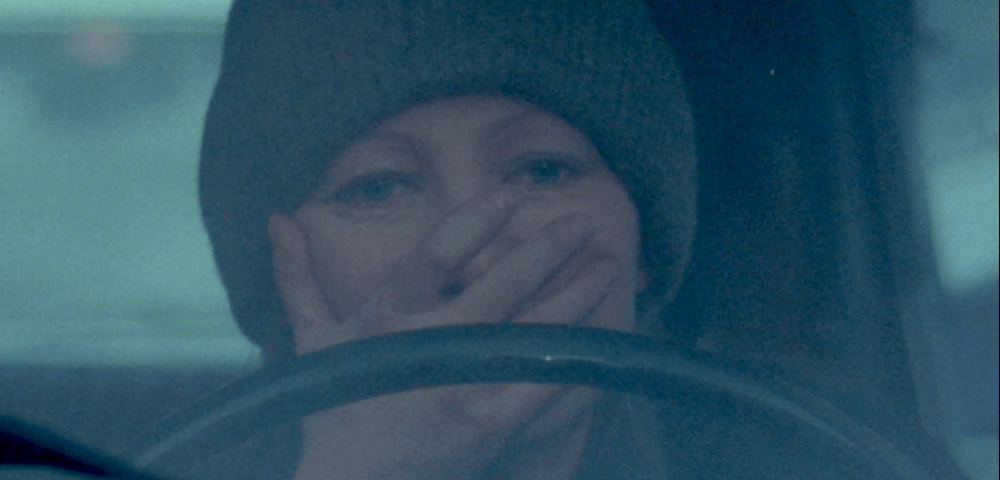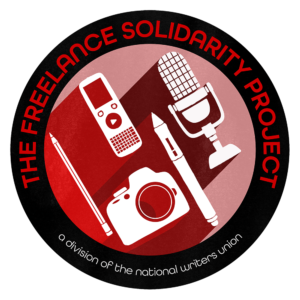SUNDAY, APRIL 30 – 7:30 PM
ONE NIGHT ONLY!
Suggested donation $10
The year was not quite 1968, and Chris Marker went to record the strike that had occupied a French textile factory in Besançon. His eventual documentary BE SEEING YOU dissatisfied some of the unionists involved, so Marker organized workshops in filmmaking basics, loaning out equipment to workers. The response-movie CLASS OF STRUGGLE shows them collectively making itself, editing footage beneath this banner: Cinema is not magic; it is a technique and a science, a technique born from science and put in service of a will: the will of workers to liberate themselves.
Few films get assembled by hand any longer. The spectacle of Hollywood is mostly the drudgery of visual-effects shops, and thousands of the unionized projectionists who once screened such movies have been replaced by encrypted DCP files. The Freelance Solidarity Project was founded in 2018 by digital media workers, another industry that lives off exploiting precarious labor. Now a division of the National Writers Union, it campaigns alongside editorial staff and street vendors alike to raise wages for all.
In Michèle Rosier’s 1976 film MON COEUR EST ROUGE, a Parisian marketer starts interviewing other women about makeup, but “drop the skincare routine” eventually segues to feminist sociology, the way solidarity can emerge through a meaningful glance. Following this screening of MON COEUR EST ROUGE, writer Chris Randle, a member of FSP’s steering committee, will discuss the cinematic labor movement with projectionists Benji and Lily Sarosi. You can’t eat prestige, yet some venerable arthouse theaters in New York City pay their staff as little as $15 per hour. If there is a future for that public cinema experience, how can we make it a truly collective one? “What is beautiful is not what is written in the tabloids,” one of the Besançon strikers said. “It’s what the working class does. Isn’t that culture?”

MON CŒUR EST ROUGE
(MY HEART IS RED)
dir. Michèle Rosier, 1976
110 mins. France.
In French with English subtitles.
MON CŒUR EST ROUGE stars Françoise Lebrun as Clara, a market research analyst hired by a big cosmetics company to interview women from different walks of life about their makeup-purchasing habits. (Rosier’s original treatment for the film put it like this: “What began as research for better ways to lie to women becomes a quest for truths only women can reveal.”) The process sees her probing questions of femininity in a Paris that’s modernizing at a rapid rate; while Clara strikes up a spur-of-the-moment romance along the way, much of the film concerns people’s embrace of (and resistance to) the new freedoms of the Sixties and Seventies. MON CŒUR EST ROUGE is a bruisingly funny cross-examination of second wave feminism and its discontents – ending in an extraordinary finale at a “Women’s Fair”, with a murderer’s row of Rosier’s collaborators playing luminaries such as Freud, Sartre, Aristotle, Marx and Shakespeare in drag – provoking dreams of an alternative history away from masculine supremacy. Screening with brand-new English subtitles translated by Claudia Eve Beauchesne.

